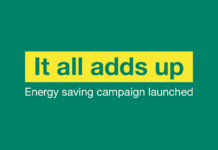The 3.8 billion people who make up the poorest half of the world saw their wealth decline by 11 per cent last year while billionaires’ fortunes rose 12 per cent – or $2.5 billion a day, an Oxfam report published today reveals.
Public Good or Private Wealth? describes how decades of progress in reducing global poverty has slowed and is being undermined by the growing gap between rich and poor. The report, published as political and business leaders gather in Davos for the World Economic Forum, finds that 26 people now own the same wealth as the poorest half of the world – down from 43 in 2017.
Many governments are exacerbating inequality by failing to invest enough in public services that are key to reducing it, the report says. Every day, it is estimated that around 10,000 people die for lack of healthcare. There are 262 million children who are not in school, often because their parents can’t afford the fees, uniforms or textbooks.
The report calls on governments to do more to fund high-quality, universal public services through tackling tax dodging and delivering fairer taxation, including on corporations and the richest individuals’ wealth, which are often under-taxed.
Head of Oxfam Cymru, Rachel Cable, said: “The massive fall in the number of people living in extreme poverty is one of the greatest achievements of the past quarter of a century but rising inequality is jeopardising further progress. Today in Wales 24% of people are living in poverty – and this figure has remained largely unchanged for a decade.
“Globally, the way our economies are organised means wealth is increasingly and unfairly concentrated among a privileged few while millions of people are barely subsisting. Women are dying for lack of decent maternity care and children are being denied an education that could be their route out of poverty. No one should be condemned to an earlier grave or a life of illiteracy simply because they were born poor.
“It doesn’t have to be this way – there is enough wealth in the world to provide everyone with a fair chance in life. Governments should act to ensure that taxes raised from wealth and businesses paying their fair share are used to fund free, good-quality public services that can save and transform people’s lives. Poverty is a political choice.”
Oxfam is warning that unless governments act to reduce inequality, the global goal to end extreme poverty by 2030 will remain out of reach. A recent World Bank report found that the global rate of poverty reduction almost halved between 2013 and 2015 compared to the 25-year average, and the number of people in extreme poverty is rising in sub-Saharan Africa. Nearly half the global population – 3.4 billion people – are barely scraping a living on less than $5.50 a day.
The International Monetary Fund (IMF) has shown there is significant potential to raise more tax revenue from businesses and the wealthiest people. There is growing support for wealth taxes from across the political spectrum, including IMF boss Christine Lagarde, the Archbishop of Canterbury, former Conservative minister Lord David Willetts; and former deputy governors of the Bank of England. In 2015, just four cents in every dollar of tax revenue collected globally came from taxes on wealth such as inheritance or property.
If the world’s richest one per cent paid an additional 0.5 per cent tax on their wealth it would raise an estimated $418 billion a year. This would be enough to educate every child currently not in school and provide healthcare that could prevent three million deaths.
Oxfam is urging governments to provide universal public services that are key to reducing inequality and poverty. Public Good or Private Wealth? shows how taxing wealth at fairer levels and avoiding a race to the bottom on corporate tax, as well as tackling corruption, tax dodging and debt, could help governments to provide universal public services. In addition to tackling inequality at home, developed nations currently failing to meet their overseas aid commitments could raise the missing billions needed to tackle extreme poverty in the poorest countries by increasing taxes on extreme wealth.
While some developing countries have made significant improvements in healthcare and education over recent decades, progress is patchy. Services are often very basic, with under-staffed clinics lacking medicines, and schools without running water or qualified teachers. In some places people who can’t afford their emergency medical bills are detained in hospital until their relatives can find the cash, leaving families indebted and impoverished. In poor countries, a child from a poor family is on average twice as likely to die before the age of five than a child from a rich family.
Help keep news FREE for our readers
Supporting your local community newspaper/online news outlet is crucial now more than ever. If you believe in independent journalism, then consider making a valuable contribution by making a one-time or monthly donation. We operate in rural areas where providing unbiased news can be challenging. Read More About Supporting The West Wales Chronicle























